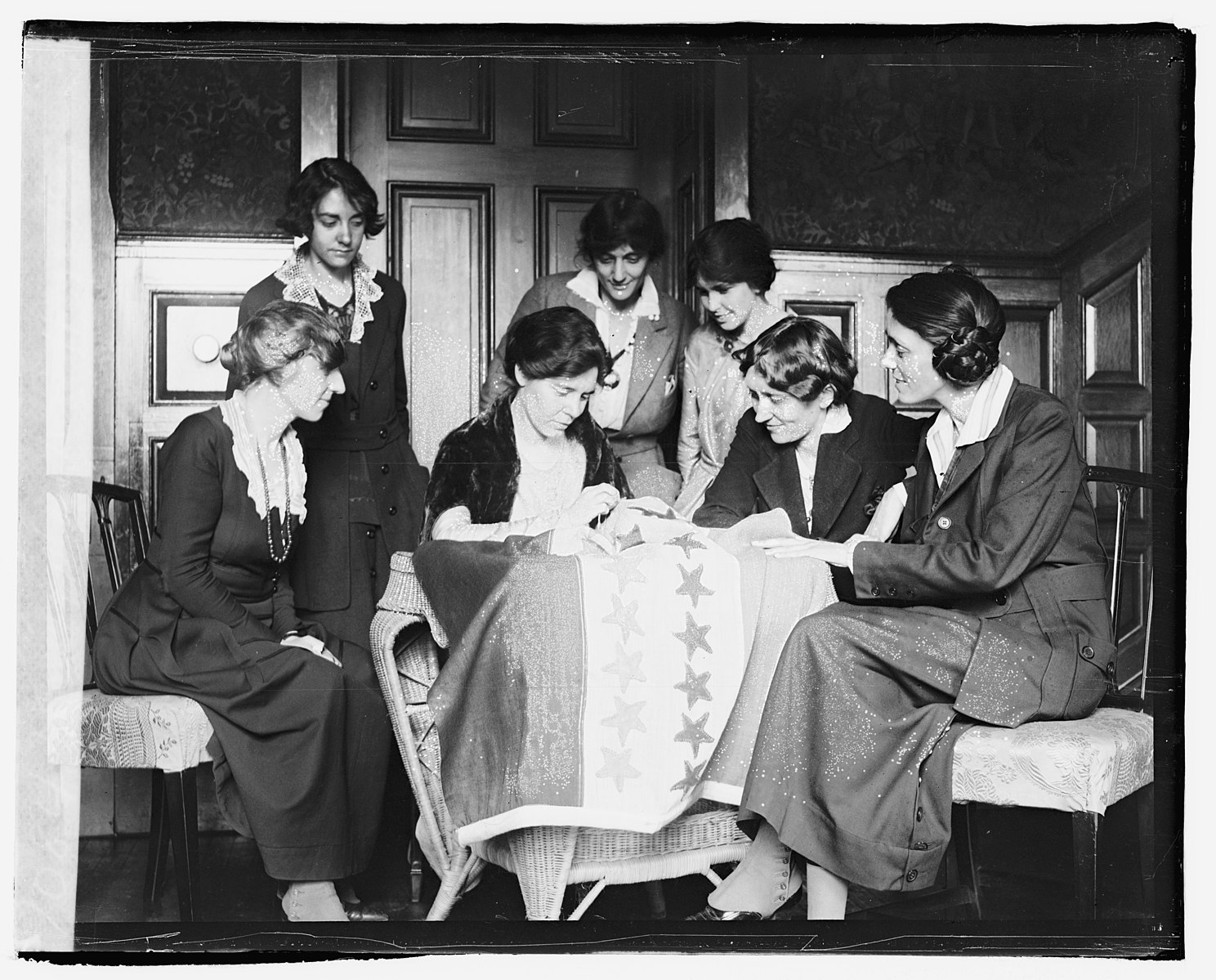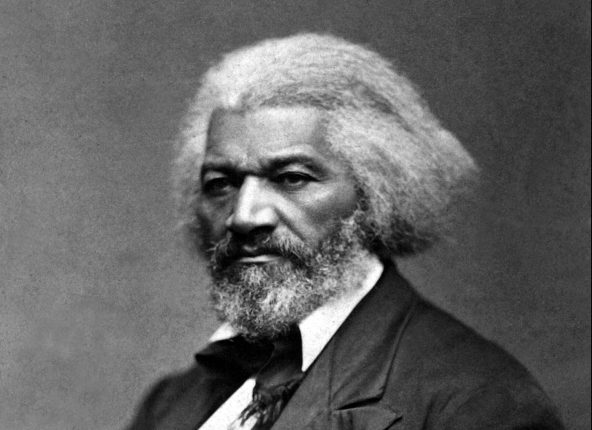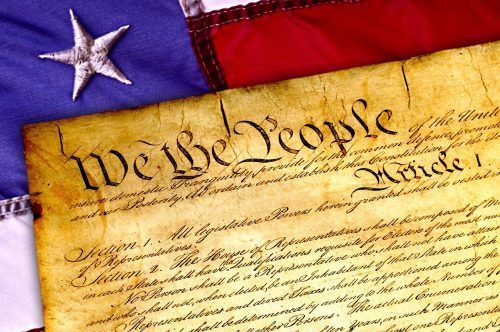The Nineteenth Amendment was ratified on August 18, 1920, celebrating its one-hundredth anniversary last year. The amendment famously removed bans on the American woman’s right to suffrage. Although some western states, notably Wyoming, Utah, Colorado, and Idaho, allowed full women’s suffrage before this date, most of the United States had partial or full restrictions on women voting.
In early America, suffrage was largely dependent on an individual’s assets – voting was limited to those who owned a certain amount of property. In most cases, this rule excluded those who weren’t white men, but laws varied enough to allow women and/or free black men to vote in several locations. New Jersey allowed all qualified citizens (including women) to vote up until 1807.
Although property qualifications declined throughout the 1800s, calls for women’s suffrage were unsuccessful. That said, the women’s suffrage movement gained traction during this time and the most important arguments for women’s rights were made by such figureheads as Susan B. Anthony, Frederick Douglass, and Elizabeth Cady Stanton. Additionally, in some states married women gained rights that had previously been denied them. After challenging voting bans on the premise of the Fourteenth Amendment’s privileges and immunities clause (and failing in Minor v. Happersett), the suffrage movement began to focus on passing a suffrage amendment to the Constitution.
Thanks in part to the new statehood of pro-suffrage western territories, the proposed Nineteenth Amendment passed the House and Senate in 1919 before being put to vote in the 48 states. Tennessee was the final state needed to achieve a 3/4 majority and officially made the amendment law on August 18, 1920, just in time for the 1920 election.
Below is a collection of resources recognizing this important piece of American law. Browse these resources or jump from section to section by clicking the links below:
Amendment XIX
The right of citizens of the United States to vote shall not be denied or abridged by the United States or by any State on account of sex.
Congress shall have power to enforce this article by appropriate legislation.
Explore the 19th Amendment at NCC’s Interactive Constitution >>
Excerpt from “Is it a Crime to Vote?”, Susan B. Anthony, 1872-1873
“A year and a half ago I was at Walla, Walla, Washington Territory. I saw there a theatrical company, called the ‘Pixley Sisters,’ playing before crowded houses, every night of the whole week of the territorial fair. The eldest of those three fatherless girls was scarce eighteen. Yet every night a United States officer stretched out his long fingers, and clutched six dollars of the proceeds of the exhibition of those orphan girls, who, but a few years before, were half starvelings in the streets of Olympia, the capital of the far-off northwest territory. So the poor widow, who keeps a boarding house, manufacturers shirts, or sells apples and peanuts on the street corners of our cities, is compelled to pay taxes from her scanty pittance. I would that the women of this republic, at once, resolve, never again to submit of taxation, until their right to vote be recognized…
In all the penalties and burdens of the government, (except the military,) women are reckoned as citizens, equally with men. Also, in all privileges and immunities, save those of the jury box and ballot box, the two fundamental privileges on which rest all the others. The United States government not only taxes, fines, imprisons and hangs women, but it allows them to pre-empt lands, register ships, and take out passport and naturalization papers. Not only does the law permit single women and widows to the right of naturalization, but Section 2 says: ‘A married woman may be naturalized without the concurrence of her husband.’ (I wonder the fathers were not afraid of creating discord in the families of foreigners); and again: ‘When an alien, having complied with the law, and declared his intention to become a citizen, dies before he is actually naturalized, his widow and children shall be considered citizens, entitled to all rights and privileges as such, on taking the required oath.’ If a foreign born woman by becoming a naturalized citizen, is entitled to all the rights and privileges of citizenship, is not a native born woman, by her national citizenship, possessed of equal rights and privileges?“
Excerpt from “The Rights of Women,” Frederick Douglass, July 28, 1848
“A discussion of the rights of animals would be regarded with far more complacency by many of what are called the wise and the good of our land, than would be a discussion of the rights of women. It is, in their estimation, to be guilty of evil thoughts, to think that a woman is entitled to equal rights with man. Many who have at last made the discovery that the negroes have some rights as well as other members of the human family, have yet to be convinced that women are entitled to any. Eight years ago a number of persons of this description actually abandoned the anti-slavery cause, lest by giving their influence in that direction, they might possibly be giving countenance to the dangerous heresy that woman, in respect to rights, stands on an equal footing with man. In the judgment of such persons, the American slave system, with all its concomitant horrors, is less to be deplored than this wicked idea. It is perhaps needless to say, that we cherish little sympathy for such prejudices. Standing as we do upon the watch-tower of human freedom, we cannot be deterred from an expression of our approbation of any movement, however humble, to improve and elevate the character of any members of the human family…
In respect to political rights, we hold woman to be justly entitled to all we claim for man. We go farther, and express our conviction that all political rights which it is expedient for man to exercise, it is equally so for women. All that distinguishes man as an intelligent and accountable being, is equally true of woman; and if that government is only just which governs by the free consent of the governed, there can be no reason in the world for denying to woman the exercise of the elective franchise, or a hand in making and administering the laws of the land. Our doctrine is, that ‘Right is of no sex.'”
Selected online resources on the Nineteenth Amendment:
 National Constitution Center’s Interactive Constitution and Interactive Women’s Suffrage Map
National Constitution Center’s Interactive Constitution and Interactive Women’s Suffrage Map
The National Constitution Center offers introductory essays by top legal scholars that explain the meaning of the Nineteenth Amendment and speak on its relationship to the Fourteenth Amendment. The site also features an interactive map tracking the growth of women’s suffrage across the United States.
Visit NCC’s Interactive Constitution and explore the interactive map here >>
 The Library of Congress Web Guide to the Nineteenth Amendment
The Library of Congress Web Guide to the Nineteenth Amendment
The Library of Congress has amassed a variety of resources on the Nineteenth Amendment, including primary documents from the time of ratification and related exhibitions and websites.
Explore the Library of Congress web guide >>
 National Archives: Women’s Rights and Teaching Resources
National Archives: Women’s Rights and Teaching Resources
In honor of the 100th anniversary of the 19th Amendment, the National Archives has compiled resources on American women’s history, notable figures, as well as related historical films. The Archives’ DocsTeach website also includes several primary documents from the suffrage movement and other teaching aids.
Visit the National Archives’ Women’s Rights page here and the DocsTeach website here >>
 The National Park Service: Historic Sites and Women’s Right to Vote
The National Park Service: Historic Sites and Women’s Right to Vote
The National Park Service features several historical sites related to the women’s suffrage movement and the Nineteenth Amendment. Professor Judith Wellman has written an article for the NPS highlighting many of these sites. An interactive Story Map indicates ratification sites for every state.
Read about women’s history sites around the country here >>
 “Don’t forget to be a Good Boy”: Febb and Harry Burn
“Don’t forget to be a Good Boy”: Febb and Harry Burn
“On a hot and muggy summer morning in the month of August 1920, a young 24 year-old Republican lawmaker from Niota (McMinn County), in the southern valley of East Tennessee, changed his ‘Nay’ vote to an ‘Aye’ during a critical final ballot to decide the fate on ratification of the 19th Amendment to the United States Constitution. Burn’s momentous decision to vote in favor of woman suffrage not only secured the elusive victory that suffragists had sought since the Seneca Falls Convention of 1848 but also secured a place for both Burn and his widowed mother, Febb Ensminger Burn, in American history as they delivered Tennessee as the ‘Perfect 36’ state to ratify the 19th Amendment…”
Read more at the East Tennessee Historical Society >>
Rita Koganzon at Harvard University: “Sophie Isn’t Oppressed: Sex, Freedom and Education in Rousseau’s Emile”
On February 7, 2019, the Program on Constitutional Government at Harvard University, a JMC partner program, hosted JMC fellow Rita Koganzon for a lecture examining philosopher Jean-Jacques Rousseau’s view of women.
*If you are a JMC fellow who’s published on influential American women, the Nineteenth Amendment, or its history and controversies, and would like your work included here, send it to us at academics@gojmc.org.
Commentary and articles from JMC fellows:
Philosophical Views of Woman’s Role
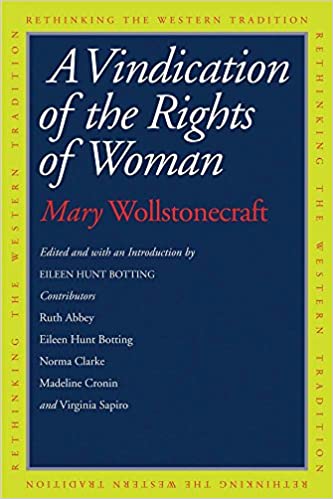 Nicholas Capaldi, “Evolving Conceptions of Women in Modern Liberal Culture: From Hegel to Mill.” (Nature, Woman, and the Art of Politics, Rowman & Littlefield, 2000)
Nicholas Capaldi, “Evolving Conceptions of Women in Modern Liberal Culture: From Hegel to Mill.” (Nature, Woman, and the Art of Politics, Rowman & Littlefield, 2000)
Madeline Ahmed Cronin (co-author), “A Vindication of the Rights of Woman within the Women’s Human Rights Tradition, 1739-2015.” (A Vindication of the Rights of Woman, Yale University Press, 2014)
Madeline Ahmed Cronin (co-author), “The Life and Times of Wollstonecraft and her Family, 1688-1818.” (A Vindication of the Rights of Woman, Yale University Press, 2014)
Steven Forde, “Gender and Justice in Plato.” (American Political Science Review 91.3, September 1997)
Nora Hanagan (co-author), “Feminist Theory and Liberal Political Theory.” (The Blackwell Encyclopedia of Political Thought, Wiley-Blackwell, 2014)
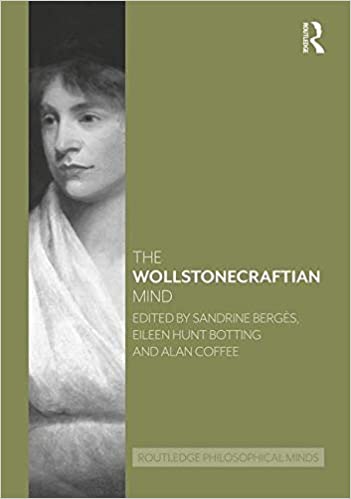 Nancy Hirschmann, “Mill, Political Economy, and Women’s Work.” (American Political Science Review 102.2, May 2008)
Nancy Hirschmann, “Mill, Political Economy, and Women’s Work.” (American Political Science Review 102.2, May 2008)
Nancy Hirschmann, “Revisioning Freedom: Relationship, Context, and the Politics of Empowerment.” (Revisioning the Political: Feminist Reconstructions of Traditional Concepts in Western Political Theory, Westview Press, 1996)
Nancy Hirschmann, “Wollstonecraft as a Freedom Theorist.” (The Wollstonecraftian Mind, Routledge Press, 2019)
Nancy Hirschmann (editor), Women and Welfare: Theory and Practice in the United States and Europe. (Rutgers University Press, 2001)
Christopher Kelly (editor), Rousseau on Women, Love, and the Family. (University Press of New England, 2009)
Women in American History & Politics
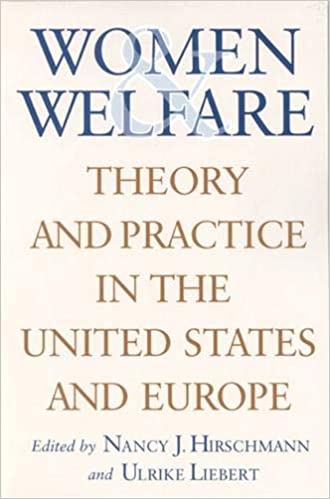 Christine Basil (co-author), “Mark Twain’s Joan of Arc: An American Woman?“ (Interpretation: A Journal of Political Philosophy 44.2, Spring 2018)
Christine Basil (co-author), “Mark Twain’s Joan of Arc: An American Woman?“ (Interpretation: A Journal of Political Philosophy 44.2, Spring 2018)
Jay Dow, “Gender Differences in Political Knowledge: Distinguishing Characteristics- Based and Returns-Based Differences.” (Political Behavior 31, 2009)
Benjamin Isaak Gross (co-author), “Clearing the Pipeline? Gender and Publishing in the APSR.” (PS: Political Science & Politics 51.3, July 2018)
Mark David Hall, “Beyond Self-Interest: The Political Theory and Practice of Evangelical Women in Antebellum America.” (Journal of Church and State 44, 2002)
Nora Hanagan (co-author), “Feminism and American Politics.” (Encyclopedia of American Governance, Cengage Learning, 2016)
Nancy Hirschmann, “A Question of Freedom, A Question of Rights? Women and Welfare.” (Women and Welfare: Theory and Practice in the United States and Europe, Rutgers University Press, 2001)
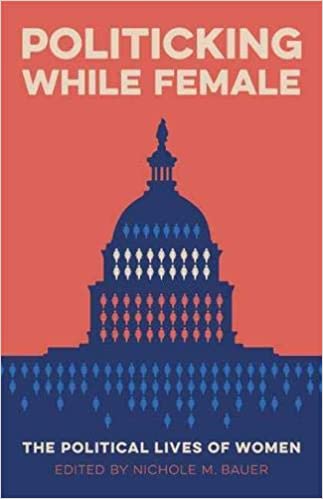 Nancy Hirschmann, “Feminist Thoughts on Freedom and Rights.” (Politics & Gender 8.2, June 2012)
Nancy Hirschmann, “Feminist Thoughts on Freedom and Rights.” (Politics & Gender 8.2, June 2012)
Nancy Hirschmann, “Freedom, Power and Agency in Feminist Legal Theory.” (Ashgate Research Companion to Feminist Legal Theory, Ashgate Publishers, 2013)
Nancy Hirschmann, “Gender and the Politics of Invisible Disability.” (Diversity, Social Justice, and Inclusive Excellence: Transdisciplinary and Global Perspectives, State University of New York Press, 2013)
Nancy Hirschmann, “The Sexual Division of Labor and the Split Paycheck.” (Hypatia: Journal of Feminist Philosophy 31.3, Summer 2016)
Mirya Holman (co-author), “Can Role Models help Increase Women’s Desire to Run? Evidence from Political Psychology.” (Politicking While Female: The Political Lives of Women, Louisiana State University Press, 2020)
Mirya Holman, “Gender, Political Rhetoric, and Moral Metaphors in State of the City Addresses.” (Urban Affairs Review 52.4, 2016)
Mirya Holman (co-author), “Power, Conflict, and Community: How Gendered Views of Political Power Influence Women’s Political Ambition.” (Political Psychology 37.4, 2015)
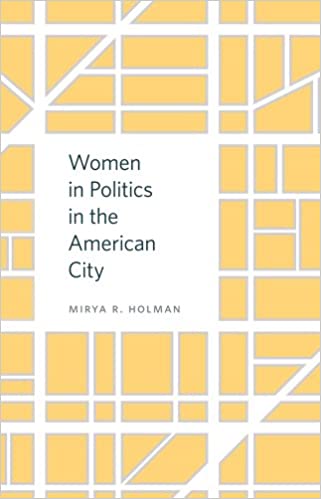 Mirya Holman, “Sex and the City: Female Leaders and Spending on Social Welfare Programs in U.S. Municipalities.” (Journal of Urban Affairs 36.4, 2014)
Mirya Holman, “Sex and the City: Female Leaders and Spending on Social Welfare Programs in U.S. Municipalities.” (Journal of Urban Affairs 36.4, 2014)
Mirya Holman, “Women in Local Government: What We Know and Where We Go From Here.” (State and Local Government Review 49.4, 2017)
Mirya Holman, Women in Politics in the American City. (Temple University Press, 2015)
Benjamin Irvin, “Of ‘Manly’ and ‘Monstrous’ Eloquence: The Henpecked Husband in Revolutionary Political Debate, 1774-1775.” (New Men: Manliness in Early America, New York University Press, 2011)
Mack Mariani, “A Gendered Pipeline? The Advancement of State Legislators to Congress in Five States.” (Politics and Gender 4.2, 2008)
Mack Mariani (co-author), “See Hillary Clinton, Nancy Pelosi and Sarah Palin Run? Party, Ideology and the Influence of Female Role Models on Young Women.” (Political Research Quarterly 68.4, December 2015)
Wilfred McClay, “Of ‘Rats’ and Women.” (Commentary 102.3, September 1996)
 Rogers Smith, “The Distinctive Barriers to Gender Equality.” (Has Liberalism Failed Women? Parity, Quotas, and Equal Representation, St. Martin’s Press, 2001)
Rogers Smith, “The Distinctive Barriers to Gender Equality.” (Has Liberalism Failed Women? Parity, Quotas, and Equal Representation, St. Martin’s Press, 2001)
Rogers Smith, “Gender at the Margins of Contemporary Constitutional Citizenship.” (Gender Equality: Dimensons of Women’s Equal Citizenship, Cambridge University Press, 2009)
Rogers Smith, “‘One United People’: Second-Class Female Citizenship and the American Quest for Community.” (Yale Journal of Law and the Humanities 1.2, 1989)
Michael Thomas (co-author), “Rational Irrationality and the Political Process of Repeal: The Women’s Organization for National Prohibition Reform and the 21st Amendment.” (Kyklos 66.1, 2013)
Kevin Wagner (co-author), “I am Woman, Hear me Tweet! Gender Differences in Twitter Use among Congressional Candidates.” (Journal of Women, Politics & Policy 38.2, 2017)
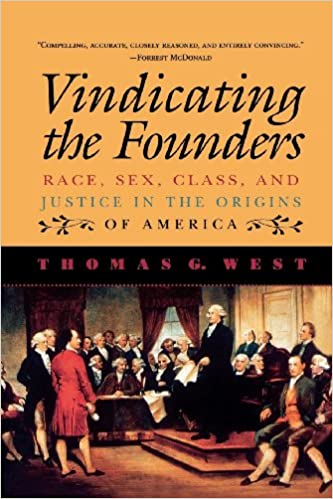 Scott Waller (co-author), “Evangelical Strength and the Representation of Women and Gays.” (Evangelicals and Democracy in America: Religion and Society, Russell Sage Foundation, 2009)
Scott Waller (co-author), “Evangelical Strength and the Representation of Women and Gays.” (Evangelicals and Democracy in America: Religion and Society, Russell Sage Foundation, 2009)
Thomas West, Vindicating the Founders: Race, Sex, Class, and Justice in the Origins of America. (Rowman and Littlefield, 1997)
Jonathan White, “‘A Shadow Over My Heart’: The Transformation of a Northern Woman’s Dream Life during the Civil War.” (UNC Press blog, March 20, 2017)
Robinson Woodward-Burns, “The Equal Rights Amendment Is One State from Ratification. Now What?“ (Washington Post: The Monkey Cage, June 20, 2018)
Jean Yarbrough, “On the Policy Implications of Feminist Theory For the E.R.A.“ (The Impact of the Equal Rights Amendment: Hearings Before the Subcommittee on the Constitution of the Committee of the Judiciary, U.S. Senate, Ninety-eighth Congress 2, U.S. Government Printing Office, 1985)
Important Women in American Political Thought
William Allen, Re-Thinking Uncle Tom: The Political Philosophy of H. B. Stowe. (Lexington Books, 2008)
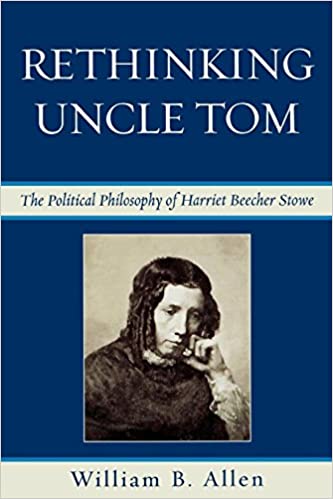 Jonathan Bean, “Rosa Parks Day: The Triumph of Colorblindness and Capitalism.” (Beacon, November 20, 2015)
Jonathan Bean, “Rosa Parks Day: The Triumph of Colorblindness and Capitalism.” (Beacon, November 20, 2015)
Michael Blaakman, “Martha Bradstreet and the ‘Epithet of Woman’: A Story of Land, Libel, Litigation, and Legitimating ‘Unwomanly’ Behavior in the Early Republic.” (Early American Studies: An Interdisciplinary Journal 13.3, Summer 2015)
Mark David Hall, “Catharine Beecher: America’s First Female Philosopher and Theologian.” (Fides et Historia 32, 2000)
Mark David Hall, “Emma Willard on the Political Position of Women.” (Hungarian Journal of English and American Studies 6.2, 2000)
Nora Hanagan, “Democratizing Responsibility: Jane Addams’s Pragmatist Ethics.” (Polity 45.3, July 2013)
Nancy Hirschmann, “Democracy, Depression, and Disability: Jean Elshtain on Democracy, Despair, and Hope.” (Jean Bethke Elshtain: Politics, Ethics, and Society, University of Notre Dame Press, 2017)
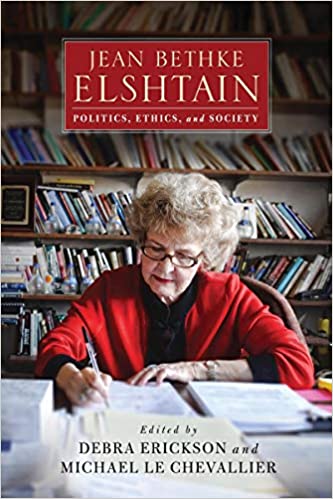 Nancy Hirschmann, “Jane Addams as Feminist Heroine: Democracy and Contentious Politics.” (Politics & Gender 11.3, September 2015)
Nancy Hirschmann, “Jane Addams as Feminist Heroine: Democracy and Contentious Politics.” (Politics & Gender 11.3, September 2015)
Sarah Houser (co-author), “‘Drawing the Line of Equality’: Hannah Mather Crocker on Women’s Rights.” (American Political Science Review 100.2, May 2006)
Michele Navakas, “Harriet Beecher Stowe’s Florida.” (FORUM: The Magazine of the Florida Humanities Council, Fall 2019)
James Patterson, “Go Down, Moses.” (Library of Law and Liberty, April 29, 2016)
Kyle Volk, “NYC’s 19th Century Rosa Parks.” (New York Daily News, August 4, 2014)
Kyle Volk (contributor), “Reflecting on Notable Female Historians in Celebration of Mother’s Day.” (OUPblog, 2016)
*If you are a JMC fellow who’s published on influential American women, the Nineteenth Amendment, or its history and controversies, and would like your work included here, send it to us at academics@gojmc.org.
![]()
![]() Follow us on Facebook and Twitter for updates about lectures, publications, podcasts, and events related to American political thought, United States history, and the Western tradition!
Follow us on Facebook and Twitter for updates about lectures, publications, podcasts, and events related to American political thought, United States history, and the Western tradition!
Want to help the Jack Miller Center transform higher education? Donate today.
